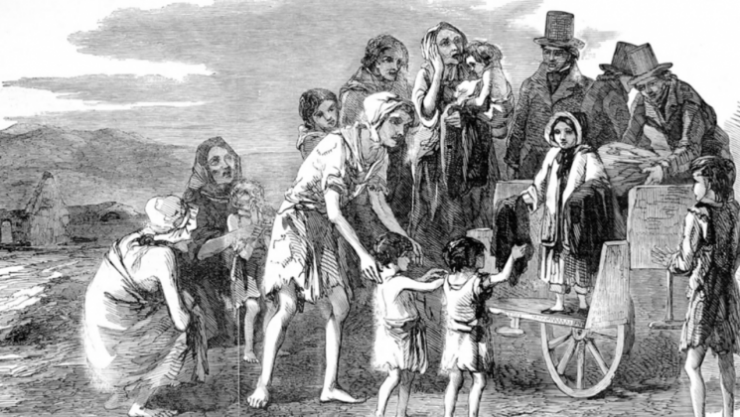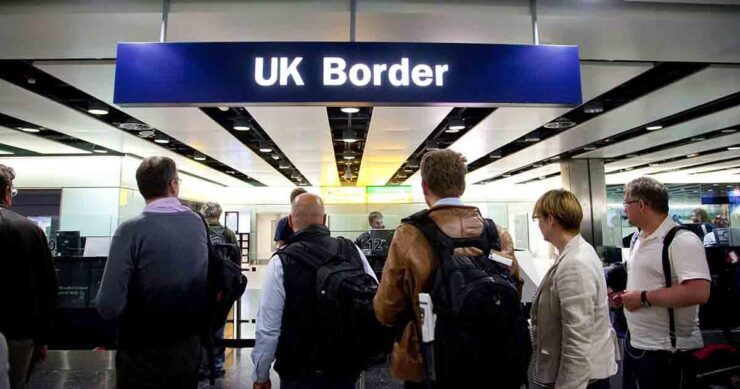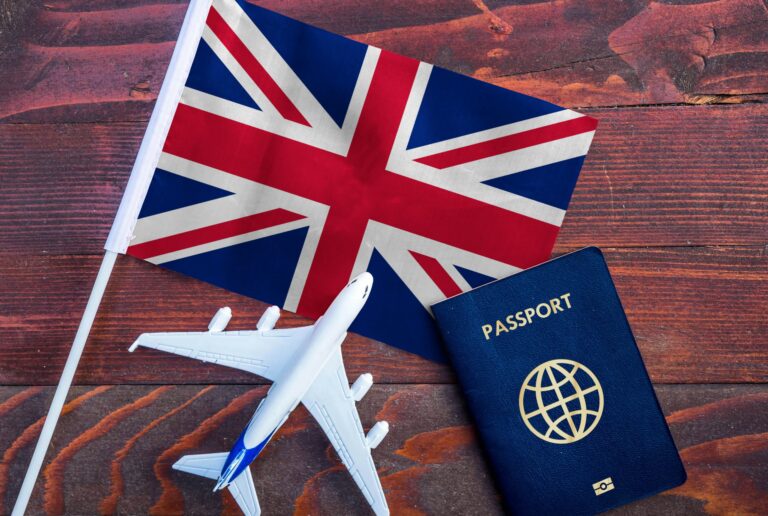Immigration has played a significant role in shaping the cultural, economic, and social landscape of the United Kingdom (UK) for centuries. The UK, with its rich history and diverse population, has been a magnet for people from all over the world seeking new opportunities and a better life. This article provides a comprehensive analysis of immigration in the UK, exploring its historical context, economic impact, societal implications, policy changes, and challenges faced by both immigrants and the host country.
Whether you’re a newcomer considering a move to the UK, a student researching immigration trends, or simply curious about the multifaceted nature of immigration in the UK, https://easyimmigration.uk/ offers valuable insights and resources to help you navigate this complex and evolving topic. Join us on this journey to better understand the past, present, and future of immigration in the United Kingdom.
Historical Background

- Irish Immigration: Throughout the 19th and 20th centuries, Ireland, which shares a close geographical proximity with the UK, witnessed waves of emigration to the British mainland. Economic hardship, famine, and political turmoil in Ireland prompted many Irish nationals to seek opportunities and refuge in the UK. This migration not only contributed to the Irish diaspora but also influenced the cultural and social fabric of cities like Liverpool and Manchester, where large Irish communities took root.
- Post-Independence Migration: In the wake of decolonization and the independence of former British colonies, a significant number of people from these newly formed nations chose to move to the UK. Many of them had familial ties to the UK due to colonial connections and sought educational and economic opportunities in the metropolitan center of the former British Empire. This migration wave added to the diversity of the UK’s immigrant population and brought with it a rich tapestry of cultures and traditions.
- Guest Worker Programs: During the mid-20th century, the UK implemented guest worker programs to address labor shortages in various industries, including manufacturing and construction. Under these programs, individuals from countries such as Pakistan, Bangladesh, and the Caribbean were recruited to work temporarily in the UK. Over time, some of these guest workers and their families settled in the UK, contributing to the multicultural landscape we see today.
- Globalization and the Knowledge Economy: In recent decades, the UK has attracted skilled professionals and academics from around the world. The rise of the knowledge economy, with a strong focus on industries such as finance, technology, and healthcare, has led to an influx of highly educated and skilled immigrants. These individuals have played a pivotal role in the country’s economic growth and innovation.
- European Union Expansion: In addition to the EU enlargement mentioned earlier, the UK also saw an increase in immigration from Western European countries. Citizens from countries like France, Germany, and Spain moved to the UK, contributing to the cultural diversity of major urban centers like London and Edinburgh.
- Student Migration: The UK has been a preferred destination for international students seeking high-quality education. Universities in the UK attract students from all corners of the globe, enhancing the country’s academic reputation and fostering international connections.
These historical milestones illustrate the dynamic nature of immigration to the UK, shaped by geopolitical events, economic factors, and social changes. As the UK continues to navigate its immigration policies and the challenges and opportunities that come with them, it must draw upon its rich history of immigration to inform its approach to a diverse and multicultural future.
Economic Impact

- Cultural Industries and Tourism: Immigrant communities have made substantial contributions to the UK’s cultural industries. This includes the music, fashion, art, and film sectors. Notable artists and musicians from diverse backgrounds have enriched the nation’s cultural output and attracted international attention. Additionally, the diverse cultural heritage of the UK has made it a more attractive destination for tourists, boosting the hospitality and tourism sectors, which play a crucial role in the nation’s economy.
- Real Estate and Housing: Immigration has also played a role in the UK’s real estate market. Immigrants, particularly those with high-skilled jobs, often invest in housing, leading to increased property values in certain areas. This can have both positive and negative effects, as rising property prices may make housing less affordable for some locals while increasing the wealth of others.
- Consumer Markets: Immigrant communities have influenced consumer markets in the UK. Businesses often tailor their products and services to cater to the preferences and needs of various immigrant groups. This adaptation has led to the availability of a wider range of cultural products and services, enriching the overall consumer experience.
- Global Trade and Diplomacy: The presence of immigrant communities with ties to various countries has facilitated international trade and diplomacy. These connections can open doors for trade agreements, cultural exchanges, and diplomatic initiatives that benefit the UK economically and politically.
- Remittances: Some immigrants send money back to their home countries, known as remittances. While this money leaves the UK, it can have a positive impact on the global economy by supporting families and communities abroad, potentially leading to improved living conditions and investments in education and healthcare in those countries.
- Demographic Aging: Immigration has also played a role in addressing the challenge of demographic aging in the UK. The influx of young and working-age immigrants has helped counterbalance the aging population and support the country’s social welfare systems.
It’s important to note that the economic impact of immigration is multifaceted and can vary across different regions and industries. While immigration has undoubtedly brought significant economic benefits, it has also raised concerns in certain areas about job competition, wage suppression, and the strain on public services. Balancing the positive economic contributions of immigrants with addressing these concerns remains a complex policy challenge for the UK government.
Societal Implications

Immigration has also shaped the social fabric of the UK in several ways:
- Cultural Diversity: The UK’s cultural landscape has been enriched by immigrants from diverse backgrounds, leading to a vibrant multicultural society.
- Social Integration: Efforts have been made to promote social integration, although challenges remain in certain communities.
- Language and Identity: The presence of multiple languages and cultural practices has raised questions about national identity and the role of English as the dominant language.
Policy Changes
The UK has experienced shifts in immigration policies over the years, reflecting changing political and economic priorities:
- Brexit: The UK’s decision to leave the EU in 2016 led to significant changes in immigration policy. The introduction of a points-based system in 2021 prioritizes skills and qualifications, making it more challenging for low-skilled workers to enter the country.
- Refugee Resettlement: The UK has adjusted its policies for refugees and asylum seekers, with debates surrounding the responsibility to provide sanctuary and the treatment of those seeking refuge.
- Family Reunification: Policies on family reunification continue to evolve, with debates on the criteria for family members to join residents in the UK.
Challenges and Controversies

While immigration has brought numerous benefits to the UK, it has also presented challenges and controversies:
- Integration: Ensuring that immigrants integrate into society and access opportunities can be challenging, particularly for marginalized communities.
- Social Services: There are concerns about the pressure on social services, such as healthcare and education, due to increased demand from a growing immigrant population.
- Public Opinion: Immigration remains a divisive issue in UK politics, with some advocating for stricter controls and others emphasizing the positive contributions of immigrants.
Conclusion
Immigration has been an integral part of the United Kingdom’s history and continues to shape its present and future. The impact of immigration on the UK is complex, with economic, social, and political dimensions. As the country grapples with evolving immigration policies and debates, it remains essential to strike a balance between harnessing the benefits of immigration and addressing the challenges it presents to create a more inclusive and prosperous society.

